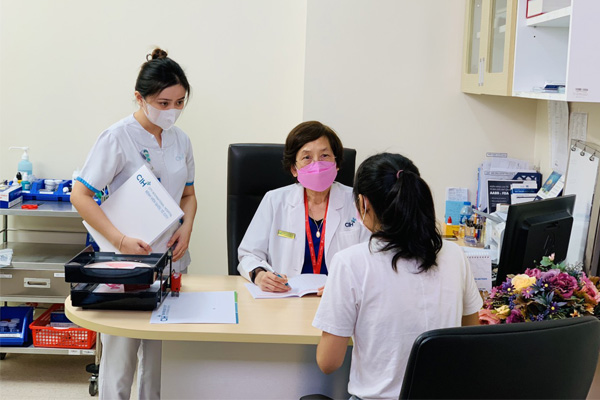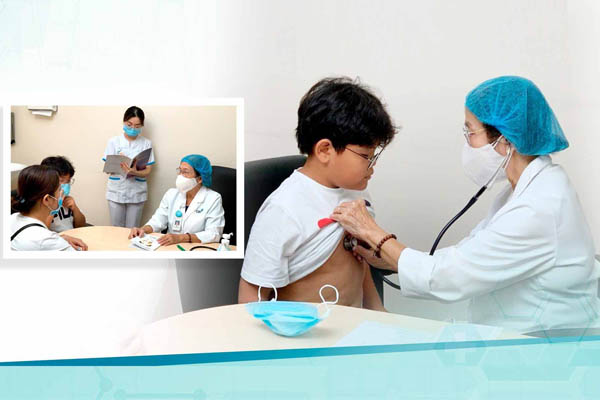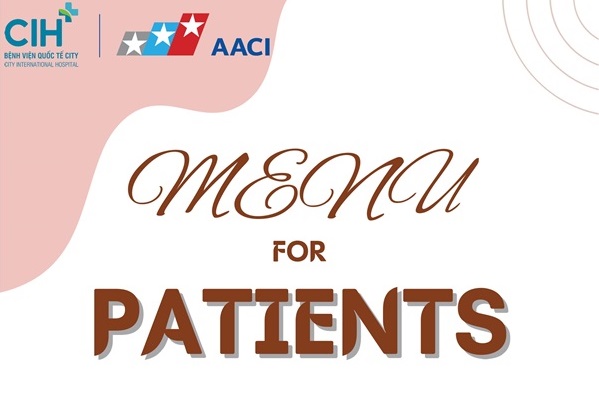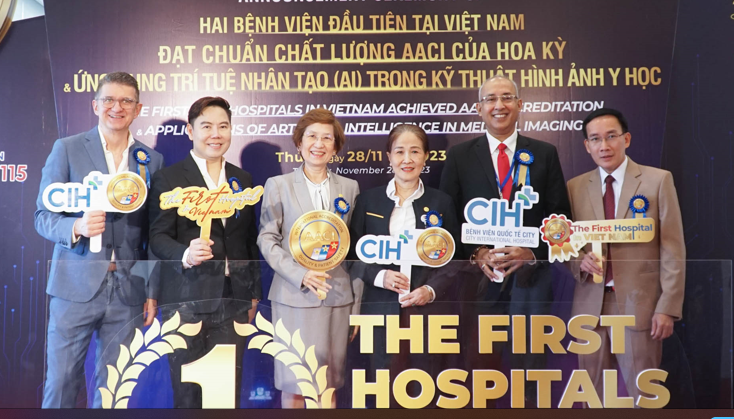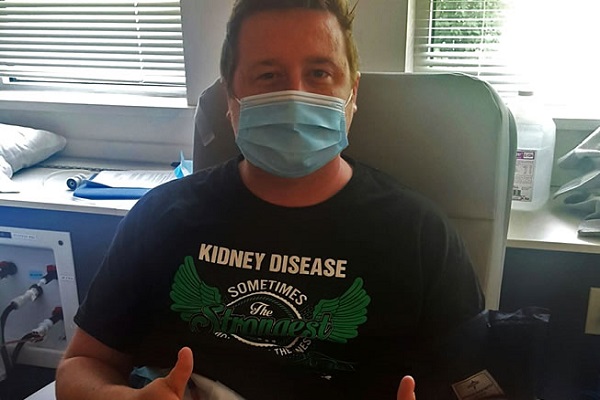myopia surgery using lasers (Lasik) to correct the shape of the cornea is the most effective way. This method is also used to treat other refractive errors in the eye such as presbyopia, astigmatism.
Myopia
(also known as short‐sightedness or near‐sightedness) is an ocular condition in which the refractive power of the eye is greater than is required, resulting in light from distant objects being focused in front of the retina instead of directly on it.
Causes of Myopia
According to Dr. Trinh Bach Tuyet, Head of Ophthalmology Department, nearsightedness occurs when the eyes are longer than normal or the cornea is too curved. As a result, light rays focus on the front of the retina instead of on the retina. People with nearsightedness can see clearly, but looking far away is blurry, easy eye strain, headache, need to squint to see and difficult to see distant objects.
For small children, myopia can be caused by frequent contact with the screen of a mobile device, the computer is too early when the vision is not fully developed. For adults, the habit of studying and working environment lack of light, sitting in the wrong posture, nutrition, genetic factors, congenital can cause nearsightedness.
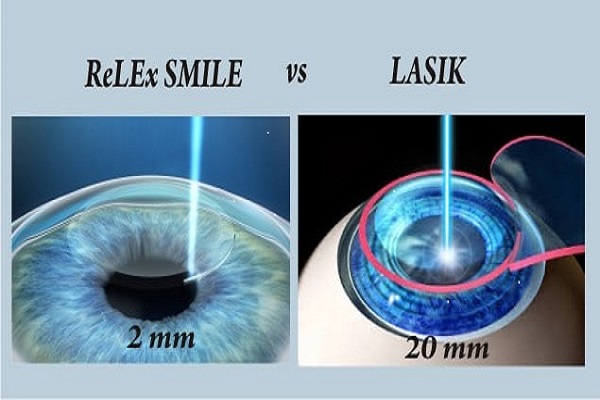
Eye glasses and contact lenses
Eye glasses and contact lenses are simple solutions; They each have functional limitations such as the problems encountered in wearing spectacles when showering or playing sports, such as individuals involved in certain sports and hazardous activities in which there is risk of eye trauma. Carrying contact lenses solutions and storage solutions can be inconvenient, and wearing contact lenses can increase the risk of corneal infection.
Corneal refractive surgery
A more permanent one is corneal refractive surgery. But, while vision correction surgery has a relatively high success rate, it is an invasive procedure, subject to post-surgical complications, and in rare cases permanent vision loss. In addition, laser-assisted vision correction surgeries such as laser in situ keratomileusis (LASIK) and photorefractive keratectomy (PRK) still use ablative technology, which can thin and in some cases weaken the cornea.
According to Dr. Trinh Bach Tuyet, myopia surgery using lasers (Lasik) to correct the shape of the cornea is the most effective way. This method is also used to treat other refractive errors in the eye such as presbyopia, astigmatism.
LASIK
LASIK, or laser in-situ keratomileusis, works for people who are nearsighted, farsighted, or have astigmatism. The doctor makes a flap in the outer layer of the cornea to get to the tissue underneath. He then uses a laser to reshape the tissue underneath your cornea so it can focus light properly. The flap is what makes LASIK different from other procedures. The doctor may also use a type of computer imaging called wavefront technology to create a detailed image of your cornea that she can use as a guide. Cost of procedure 20-24 million dong.
Laser in situ keratomileusis (LASIK)
Laser in situ keratomileusis (LASIK) 2005 and its variant, femtosecond LASIK (FS-LASIK), despite their success in providing independence from corrective eyeglasses (spectacles) and contact lenses, has continued to be associated with rare complications, including flap-related complications, postoperative dry eye, denervation of corneal nerves, and biomechanical instability leading to corneal ectasia. Engineers, scientists, and surgeons have continued to study alternatives to LASIK because of these uncommon but potentially serious complications. Cost of procedure 20-24 million dongs 40 million dong.
SMILE Laser eye surgery
ReLEx® SMILE - Advanced State-Of-The-Art Laser Eye Surgery. SMILE is an acronym for SMall Incision Lenticule Extraction (which is a mouthful and not very easy to remember). Recently, SMILE laser eye surgery is performed using a VisuMax femtosecond laser, which is proprietary technology of Carl Zeiss Meditec. SMILE is an acronym for SMall Incision Lenticule Extraction (which is a mouthful and not very easy to remember). The procedure costs around 70 million dongs.
Dr. Tuyet said "the number of eyes indicated for surgery is between 0.5 Diop and 10 Diop depending on the individual eye surgery. Particularly, Relex Smile method can be carried out on patients with high level of upper 10 points. Therefore, after examining, check each patient's doctor can decide whether surgery or not, and which method is best for the patient."
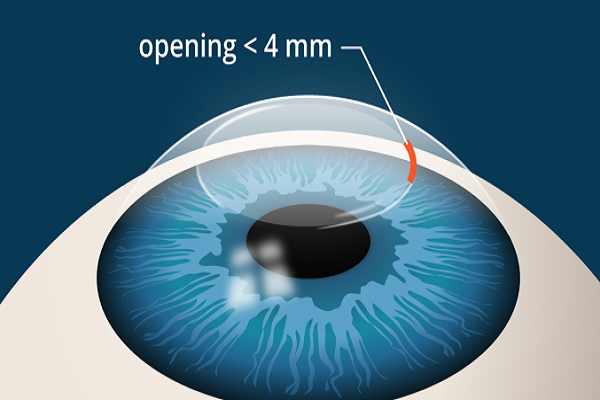
ReLEx® SMILE - Advanced State-Of-The-Art Laser Eye Surgery.
Are the results of LASIK surgery permanent?
In most cases, it is seen that the result of LASIK surgery is long-lasting, as long as the patient remains healthy. Patients usually achieve a 20/20 vision, but in some cases reading glasses may be required.
If you experience a sudden onset of certain health conditions, such as diabetes, it may affect the quality of your vision.
Also, the term “permanently” in a way cannot be applied to our eyesight whether we undergo LASIK surgery or not, as natural deterioration of eyesight which happens with age, cannot be halted by LASIK surgery.
Post the surgery you will be advised to:
- not rub your eyes
- avoid any form of exercise, such as heavy lifting, or swimming, that could result in eye injury for at least a month
- refrain from driving till the doctor deems it fit
- wear sunglasses for a week after the surgery, even while indoors
- avoid applying any makeup or lotion on the face, and avoid any situation involving dirt for 7-10 days.
- be careful not to get face wash or soap in your eyes while washing your face, or showering. (In fact, you need to keep water and shampoo away from your eyes for at least 7 days after the surgery)
- avoid swimming and hot tubs for at least a month after the surgery
- apply eyedrops in your eyes at regular intervals as prescribed by the doctor
- No 3, Street 17A, Ward Binh Tri Dong B, District Binh Tan, HCMC.
- Hotline: (8428) 6280 3333 (ext: 8180) for consultation.
- Website: www.cih.com.vn.
- Fanpage: https://www.facebook.com/BenhVienQuocTeCity













